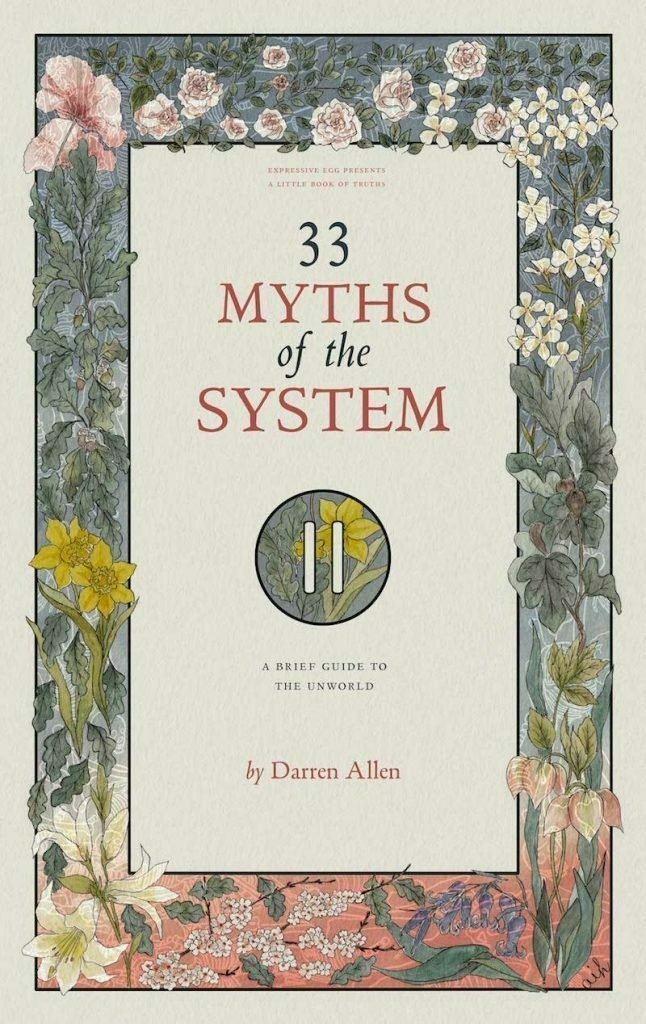The techno-feudal economy
Yanis Varoufakis is best known for his short stint as Greek finance minister in 2015 during a stand-off with the European Central Bank, the International Monetary Fund and the European Commission. He’s used that platform to speak out about capitalism and publish several books.
This interview with EL PAÍS is interesting in terms of his analysis of our having moved beyond capitalism to what he calls ‘technofeudalism’. Varoufakis believes that this new economic order has emerged due to the privatisation of the internet and the response to the 2008 financial crisis. Politicians have lost power over large corporations and the system that has emerged is, he believes, incompatible with social democracy and feminism.

Capitalism is now dead. It has been replaced by the techno-feudal economy and a new order. At the heart of my thesis, there’s an irony that may sound confusing at first, but it’s made clear in the book (Technofeudalism: What Killed Capitalism). What’s killing capitalism is capitalism itself. Not the capital we’ve known since the dawn of the industrial age. But a new form, a mutation, that’s been growing over the last two decades. It’s much more powerful than its predecessor, which — like a stupid and overzealous virus — has killed its host. And why has this occurred? Due to two main causes: the privatization of the internet by the United States, but also the large Chinese technology companies. Along with the way in which Western governments and central banks responded to the great financial crisis of 2008.Source: Yanis Varoufakis: ‘Capitalism is dead. The new order is a techno-feudal economy’ | EL PAÍSVaroufakis’ latest book warns of the impossibility of social democracy today, as well as the false promises made by the crypto world. “Behind the crypto aristocracy, the only true beneficiaries of these technologies have been the very institutions these crypto evangelists were supposed to want to overthrow: Wall Street and the Big Tech conglomerates.” For example, in Technofeudalism, the economist writes: “JPMorgan and Microsoft have recently joined forces to run a ‘blockchain consortium,’ based on Microsoft data centers, with the goal of increasing their power in financial services.”
[…]
Capitalism only brings enormous, terrible burdens. One is the exploitation of women. The only way women can prosper is at the expense of other women. No, in the end — and in practice — feminism and democratic capitalism are incompatible.
Saying "I don't know" is a privilege
Paul Graham is a smart guy. He’s a venture capitalist, and here he’s in conversation with Tyler Cowen, an economist. Both men are further to the right, politically, than me — so I winced a little at their references to the ‘far left’.
That being said, it’s an interesting episode and Cowen’s rapid-fire questioning is a useful tactic for getting guests to be more candid than they would otherwise be. What I found fascinating about Graham’s responses was that he would often say “I don’t know” instead of the prosaic “that’s a great question”. I guess once you’ve got the standing he has, there’s no need for him to pretend otherwise.

Source: Paul Graham on Ambition, Art, and Evaluating Talent (Ep. 186) | Conversations with TylerTyler and Y Combinator co-founder Paul Graham sat down at his home in the English countryside to discuss what areas of talent judgment his co-founder and wife Jessica Livingston is better at, whether young founders have gotten rarer, whether he still takes a dim view of solo founders, how to 2x ambition in the developed world, on the minute past which a Y Combinator interviewer is unlikely to change their mind, what YC learned after rejecting companies, how he got over his fear of flying, Florentine history, why almost all good artists are underrated, what’s gone wrong in art, why new homes and neighborhoods are ugly, why he wants to visit the Dark Ages, why he’s optimistic about Britain and San Fransisco, the challenges of regulating AI, whether we’re underinvesting in high-cost interruption activities, walking, soundproofing, fame, and more.
The sleight of hand of crypto
Cory Doctorow is doing the rounds for his new book at the moment. But because he’s Cory, he’s not just phoning it in, or parroting the same lines.
Take this interview in Jacobin, for example. Yes, he’s talking about why he decided to write a story about crypto, but he’s so well informed about this stuff on a technical level that it’s a joy to read the way he explains things.
There’s this kind of performative complexity in a lot of the wickedness in our world — things are made complex so they’ll be hard to understand. The pretense is they’re hard to understand because they’re intrinsically complex. And there’s a term in the finance sector for this, which is “MEGO:” My Eyes Glaze Over. It’s a trick.Source: Cory Doctorow Explains Why Big Tech Is Making the Internet Terrible | Jacobin[…]
A lot of the crypto stuff starts with what a sleight-of-hand artist would do. “Alright, we know that cryptography works and can keep secrets and we know that money is just an agreement among people to treat something as valuable. What if we could use that secrecy when processing payments and in so doing prevent governments from interrupting payments?”
After this setup, the con artist can get the mark to pick his or her poison: “It will stop big government from interfering with the free market” or “It will stop US hegemony from interdicting individuals who are hostile to American interests in other countries and allow them to make transactions” or “It will let you send money to dissident whistleblowers who are being blocked by Visa and American Express.” These are all applications that, depending on the mark’s political views, will affirm the rightness of the endeavor. The mark will think, that is a totally legitimate application.
It starts with a sleight of hand because all the premises that the mark is agreeing with are actually only sort of right. It’s a first approximation of right and there are a lot of devils in the details. And understanding those details requires a pretty sophisticated technical understanding.
Saturday sailings
I deactivated my Twitter account this week. I've done that before, but this time I'm honestly not sure if I'll reactivate it.
Given that I get a fair few links through Twitter, I wonder if the kind of things I share in these weekly link roundups will change? We shall see, I guess. You can connect with me via the Fediverse: https://mastodon.social/@dajbelshaw

33 Myths of the System
Drawing on the entire history of radical thought, while seeking to plumb their common depths, 33 Myths of the System, presents a synthesis of independent criticism, a straightforward exposure of the justifications of the world-system, along with a new way to perceive and understand the unhappy supermind that directs, penetrates and even lives our lives.
Darren Allen
While I didn't agree with absolutely everything in this free e-book, it's fair to say it blew my mind. Highly recommended, especially for thoughtful people. One of the best things I've read in the last decade in terms of getting me to question... everything.
A catastrophe at Twitter
In any case, Twitter’s response to the incident offered further cause for distress. The company’s initial tweet on the subject said almost nothing, and two hours later it had followed only to say what many users were forced to discover for themselves: that Twitter had disabled the ability of many verified users to tweet or reset their passwords while it worked to resolve the hack’s underlying cause.
The near-silencing of politicians, celebrities, and the national press corps led to much merriment on the service — see this, along with Those good tweets below, for some fun — but the move had other, darker implications. Twitter is, for better and worse, one of the world’s most important communications systems, and among its users are accounts linked to emergency medical services. The National Weather Service in Lincoln, IL, for example, had just tweeted a tornado warning before suddenly going dark. To the extent that anyone was relying on that account for further information about those tornadoes, they were out of luck.
Casey Newton (The INterface)
I didn't actually deactivate my Twitter account because of the hack — that was actually more to do with the book mentioned above — but as a verified user, this certainly reinforced my decision. Just a reminder that at least one person with nuclear codes uses Twitter as their primary means of communication.
This is Fine: Optimism & Emergency in the P2P Network
Centralised platforms crave data collection and thirst for trust from the communities they seek to exploit. These platforms sell bloated, overpowered hardware that cannot be repaired, vulnerable to drops in consumer spending or spasms in the supply chain. They anxiously eye legislation to compel encryption backdoors, which will further weaken the trust they need so badly. They wobble beneath network disruptions (such as the worldwide slowdowns in March under COVID-19 load surges) that incapacitate cloud-dependent devices. They sleep with one eye open in countries where authoritarian governments compel them or their employees to operate as an informal arm of enforcement. These current trajectories point to the accelerating erosion of centralised platform power.
Cade Diehm (The New Design Congress)
This is an incredible article that's very well presented. I keep talking about the importance of decentralisation, and this article backs that up — but also explains how and why decentralised social networks need to do better.

Our remote work future is going to suck
While the upsides to remote work are true, for many people remote work is a poison pill — one where you are given “control” in the name of productivity in exchange for some pretty nasty long-term effects.
In reality, remote work makes you vulnerable to outsourcing, reduces your job to a metric, creates frustrating change-averse bureaucracies, and stifles your career growth. The lack of scrutiny our remote future faces is going to result in frustrated workers and ineffective companies.
Sean Blanda
I'm a proponent of remote work, but I was nodding along to many of the points made in this post. Context is everything, and there's something to be said about being able to go home to escape work.
CO2 emissions on the web
Your content site probably doesn’t need JavaScript. You probably don’t need a CSS framework. You probably don’t need a custom font. Use responsive images. Extend your HTTP cache lifetimes. Use a static site generator or wp2static.com instead of dynamically generating each page on the fly, despite never changing. Consider ditching that third-party analytics service that you never look at anyway, especially if they also happen to sell ads. Run your website through websitecarbon.com. Choose a green web host.
Danny van Kooten
This week I changed the theme over at my personal blog to one that is much lighter. When I shared what I'd done on Mastodon, someone commented that they didn't think it would make that much difference. This post was written by someone who popped up to rebut what they said.
Ask a Sane Person: Jia Tolentino on Practicing the Discipline of Hope
INTERVIEW: What has this pandemic confirmed or reinforced about your view of society?
TOLENTINO: That capitalist individualism has turned into a death cult; that the internet is a weak substitute for physical presence; that this country criminally undervalues its most important people and its most important forms of labor; that we’re incentivized through online mechanisms to value the representation of something (like justice) over the thing itself; that most of us hold more unknown potential, more negative capability, than we’re accustomed to accessing; that the material conditions of life in America are constructed and maintained by those best set up to exploit them; and that the way we live is not inevitable at all.
Christopher Bollen
I have to confess to not knowing who Jia Tolentino was before stumbling across this via the Hurry Slowly newsletter (although I must have read her writing before). This is a fantastic interview, which you should read in its entirety.
Header image by Fab Lentz

